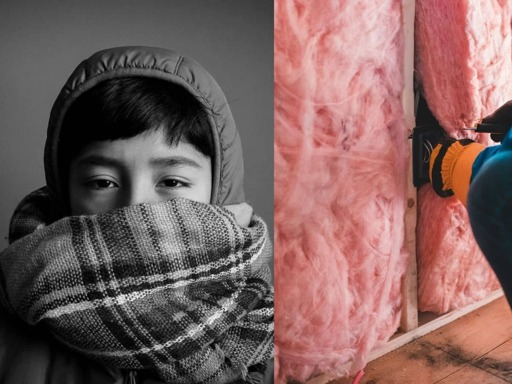New research from Barnardo’s and YouGov suggests that 300,000 children in the UK do not have a winter coat. This comes as 5 million families are in deep fuel poverty, which raises questions about the timeline of the government’s Warm Homes scheme. In reality, this is what Child Poverty now looks like in Britain.
Child poverty — kids going cold
The new figures suggest that one in seven parents in the UK will struggle to afford a coat or other warm clothing this winter.
One in 50 children in the UK does not have a winter coat. Meanwhile, one in eight who do have a coat are worried it will not keep them warm over winter.
One in six parents says the same — they are worried that their child’s coat or clothing will not be warm enough. However, it is all they can afford.
The government’s own statistics estimate that 11% of households (2.73m) are living in fuel poverty in England. That means they are unable to keep their home adequately heated. I.e., they are living in a cold house.
Average fuel prices would have to drop by £407 per year for these households to no longer be in fuel poverty.
In total, 43% of UK households are struggling with their energy bills. Research from the University of York shows that they spend more than 10% of their total household income on energy bills. For over 5m of these households, that figure is over 20%. This means they are in deep fuel poverty.
Warm homes
The Warm Homes Local Grants is a government-funded scheme for low-income households in England. It will provide free home improvements, such as insulation, solar panels, and heat pumps.
It is part of the Labour Party’s manifesto commitment to upgrade 5 million homes over the next five years. The primary aim is to cut energy bills and slash fuel poverty.
Starmer’s government is also aiming to provide the country with clean energy by 2030 in an attempt to reach Net Zero.
Local authorities had the chance to apply for the Warm Homes scheme, and funding allocations were announced earlier this year.
Some councils, such as Derby and Worcestershire, have now opened up the scheme for households to apply for home improvements.
However, the delivery window for the scheme does not end until 31 March 2028. This is how long local authorities have to use the funding. It means that some councils may not provide the home improvements until that date.
Which means that some families will be spending three more winters in a cold house.
ReLoved clothing
Natalie Frankland, Founder of ReLoved clothing — a clothing bank in Hartlepool, provides free school uniforms and clothing to families in need.
Of course, providing free warm clothing to families in need does not eradicate fuel poverty, and the government has a responsibility to make energy bills affordable so no one is cold in their own home.
But ReLoved does allow people, especially families, to access warm clothes when they need them most.
Natalie told the Canary:
The findings from Barnardo’s reflect exactly what we are seeing in Hartlepool at the moment, and the scale locally is significant. This is our busiest time of year and, in the last six weeks alone, we have already seen a sharp increase in demand for warm coats, jumpers and winter clothing. Families are clearly struggling to keep homes heated, and clothing is becoming the first line of defence against the cold.
ReLoved has supported over 7,000 children and 2,500 adults so far this year with free, good-quality clothing. Requests for winter items have risen by around 40% since last year’s figures, since the beginning of October. Parents are telling us directly that heating is now a luxury, and they are relying on layers, blankets and donated items to keep warm. Daily we see more and more children arriving without adequate coats or footwear for the weather, and more families seeking urgent support as temperatures drop.
This is not a budgeting issue, it is the result of sustained financial pressure. Energy costs, food prices and rent increases have left households with nothing spare. Clothing is now one of the clearest indicators of poverty in towns like ours.
We support Barnardo’s in highlighting this nationally, but the situation in Hartlepool shows how deep the problem runs. Community organisations like ours are now providing essentials that should never rely on charity. Unless there is long-term action on household poverty and energy inequality, families will continue to face winters where warmth is unaffordable.
The long-term impact of this crisis is already visible, children missing school due to ill health, increased anxiety, and the normalisation of hardship in a generation growing up cold.
Feature image via Unsplash /Luz Fuertes & Erik Mclean
By HG
From Canary via this RSS feed


